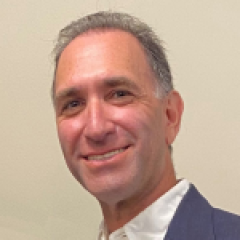The Answer Sheet: Academics Are Only Part of the Education This School Offers Its Diverse Student Body

Revere High School students and staff (Provided by Revere)
(This is the ninth in a series of posts about schools named as winners in the 2015-2016 Schools of Opportunity project. You can find the first post here and the second here. the third here and the fourth here, the fifth one here, the sixth here, the seventh here and the eighth here. There are links to all at the bottom of this post.)
If you have paid attention to the school reform debate in recent years, you would be forgiven for thinking that public schools across the board are failing students and that schools that are struggling can only improve if they fire all of their staff, become a charter school or let the state take them over. It’s just not so.
This is clear in a project called the Schools of Opportunity, launched a few years ago by educators who sought to highlight public high schools that actively seek to close opportunity gaps through research-proven practices and not standardized test scores (which are more a measure of socioeconomic status than anything else).
The project assesses how well schools provide health and psychological support for students, judicious and fair discipline policies, high-quality teacher mentoring programs, outreach to the community, effective student and faculty support systems, and broad and enriched curriculum. Schools submit applications explaining why they believe their school should be recognized.
The project started in 2014 as a pilot program in New York and Colorado, and went national in 2015-2016, with gold and silver winners coming from states including Maryland, Georgia, California and Oregon. It is the brainchild of Kevin Welner, director of the National Education Policy Center at the University of Colorado at Boulder and a professor specializing in educational policy and law; and Carol Burris, a former award-winning principal in New York who is now executive director of the nonprofit Network for Public Education.
Twenty schools were named as honorees for the 2015-16 school year — eight gold winners and 12 silver — and you can see the list here. It is important to note that each school found success in ways that met the needs of their own communities. Here’s a post on one of the gold winners, Revere High School in Massachusetts.
By Kevin Welner
Revere High School
Revere, MA
Principal Lourenço Garcia
Superintendent Dianne Kelly
Enrollment: 1,837
Economically disadvantaged students: 34 percent
Revere High School offers a respectful and safe environment for its diverse students — more than 12 percent of whom are immigrants and one-third who come from low-income families — with a Newcomers Academy, its own “genius bar,” culturally responsive instruction and other innovative programs designed to provide a personalized, rigorous and purposeful education while meeting the complex needs of the diverse student body.
Revere has a strong advisory program and teaches anti-bullying lessons embedded across subject areas, sharing clear policies and reporting procedures with students, parents and staff. Students themselves are invested in these efforts, with several clubs sponsoring anti-harassment and anti-discrimination activities.
More than 12 percent of Revere’s students are immigrants, many of whom are refugees from war-torn or unstable countries who come to school with limited — or no — English and with interruptions in their education.
The Newcomers Academy is taught and supported by a cross-disciplinary team of English language teachers, core academic teachers, guidance counselors, administrators, and other service providers, who provide these students with intensive, comprehensive services that take into account their original language and life experiences. Teachers engage in ongoing, collaborative training designed to promote tolerance and deliver instruction responsive to students’ cultures.
The results have been impressive: 88 percent of the students enrolled in the Newcomers Academy last year successfully made the transition to mainstream classes this year. There they have the opportunity to access the same educational opportunities as native-born students who follow traditional and advanced learning pathways to graduation. In addition, the school’s dropout and student absenteeism rates (0.8 percent and 7 percent, respectively) have plunged in recent years.
Revere extends learning time beyond regular school hours, providing many opportunities for students to expand and enrich their learning. Internships with local businesses, an eighth-grade summer transition program, peer tutoring, credit recovery classes, dual enrollment in local colleges, and certificate paths expand students’ educational options.
During vacation weeks, Revere offers “ramp-up” classes in English and math to any student who needs more time in those subjects. Core content classes follow “flipped learning” approaches, a combination of individual student learning and longer classroom group time dedicated to the creative application of ideas and deeper exploration of concepts.
A “Learning Commons” with expanded hours has replaced Revere’s former library with 21st-Century media and flexible gathering spaces to support “anywhere, anytime” learning for all students. Open from 6 a.m. to 5 p.m, the Learning Commons features a Genius Bar, a Writing Center staffed by a full-time teacher, peer tutors, innovative technology that includes a television station and film-making options, a bank and school store, an array of online primary source materials for study and research, smart boards, cozy nooks and complete technology access for those students without those resources at home.
Serious about offering other rigorous class opportunities to all of its students, Revere also has seen steady increases in the number of students taking Advanced Placement classes. Last year, for example, 46 percent of Revere’s senior students took at least one AP exam.
These innovative practices would not be possible without robust programs to support Revere’s teachers, who drive instruction and collaborate on important decisions for the school.
The school and district support teachers in obtaining National Board Certification, offer site-based master’s degree programs, and provide novice teachers with a comprehensive support system that includes weekly mentoring by experienced colleagues. Professional development programs such as World Class Instructional Design and Assessment and Rethinking Equity and Teaching for English Language Learners coalesce with school goals and reinforce a universally shared mission for teaching and learning at Revere.
The school’s deep commitments to creating a healthy school culture while providing innovative and purposeful learning opportunities for the entire school community distinguish Revere High School as a gold School of Opportunity.
This blog post has been shared by permission from the author.
Readers wishing to comment on the content are encouraged to do so via the link to the original post.
Find the original post here:
The views expressed by the blogger are not necessarily those of NEPC.

